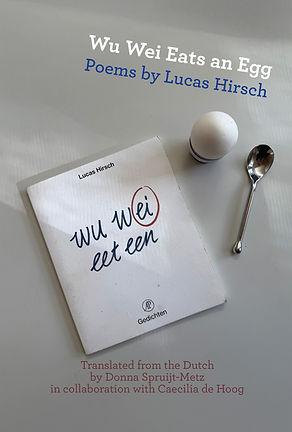To Phrase A Prayer for Peace
Wildhouse Publishing
March 25, 2025
Click here to order!!

Cover art and design by Melody Stanford Martin
Donna Spruijt-Metz’s diary poems “To Phrase a Prayer for Peace” are a frank dialogue with the Psalms during the ongoing Gaza conflagration, engaging in that ancient practice of calling out to the divine, and calling out the divine, in a time of divine silence, to ask for an end to this violence, to imagine a path forward. We need more poems like this, with their unhardened hearts, in this awful dark.
— Philip Metres, author of Fugitive/Refuge

Cover Art Old on Panel by Gershom
Cover Design by David Blakesley & Chloé Brun
Stitched equally with wit, tenderness, and the grace of longing, the poems of General Release from the Beginning of the World reinvigorate the metaphysical tradition for our still-new century. These brave poems prove their own way forward to the difficult doubleness of truth: it can set you free but, first, it’ll break your heart. These impressive poems will, too.
----Carl Phillips
.
Wu Wei Eats an Egg
Poems by Lucas Hirsch in translation
August 5, 2025
Ben Yehuda Press Order here!

Alternatingly enraged at and bemused by the 21st century, with its traps of bourgeois excess, addiction, and “hollow language,” Hirsch regularly explores the interior self, familial history, and the physical world (in which a tree “writ[es] a poem” each day in front of the speaker’s window). There’s also an exhilarating mix of reverence and irreverence, popular culture and “high literature”—something translator Donna Spruijt-Metz captures brilliantly
---Wayne Miller
And Scuttle My Balloon
Flower Conroy & Donna Spruijt-Metz
Picture Show Press
September 2, 2025 Order here

Once, Flower made a list of last lines of Emily Dickinson poems. She thought they would make beguiling titles — and we began to work on 'Emily' poems — We passed the poems back and forth so often that it was often unclear to either of us who wrote what--aline one believed they wrote curled like an unfurled fern leaf unto itself, a muddled melding of their voices (muddled, as in a mud from which eerie stems stake forth, thorned, petaled or gilled and capped) until who could be sure where one hand began and the other took over?
Dear Ghost,
Harbor Review Press

"In exquisitely crafted language and unexpected images, Spruijt-Metz draws us into the invisible world of grief as it exists in interaction with objects remaining in the living world. Dear Ghost is a testimony of grief unlike any other that I’ve read."
—Joan Kwon Glass, author of Night Swim
Cover Art Old on Panel by Gershom
Cover Design by Chloé Brun
We passed these poems back and forth so often that it was often unclear to either of us who wrote what. What a delight.
And Haunt the World
Flower Conroy and Donna Spruijt-Metz
Ghost City Press--FInd it here!

Slippery Surfaces
Finishing Line Press

Slippery Surfaces deftly brings narrative situation and lyric song into coalescence. Spruijt-Metz’s ultimate subject is memory itself, which she movingly describes in its various guises—as lens, as veil, as mirror.
– Rick Barot